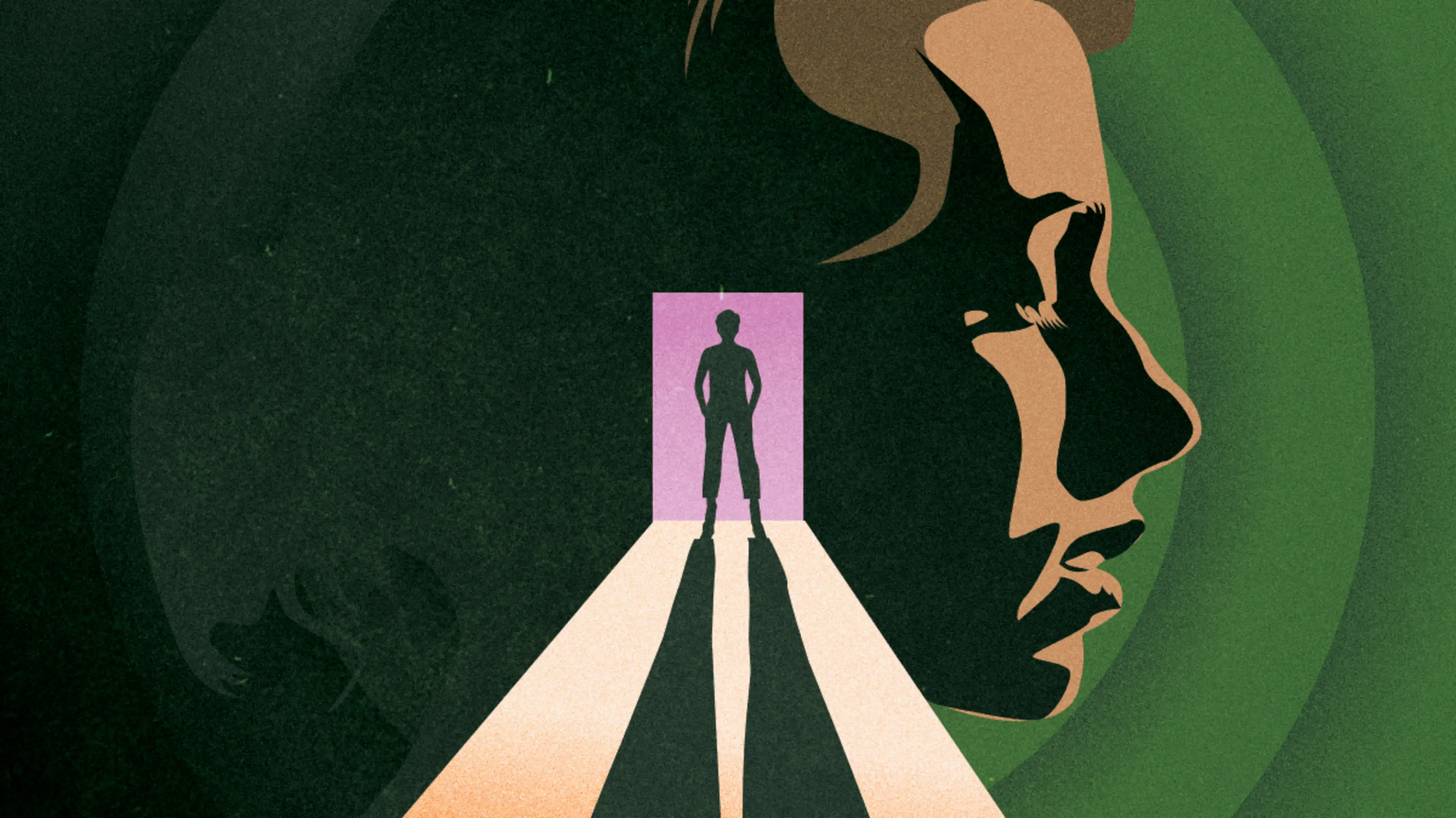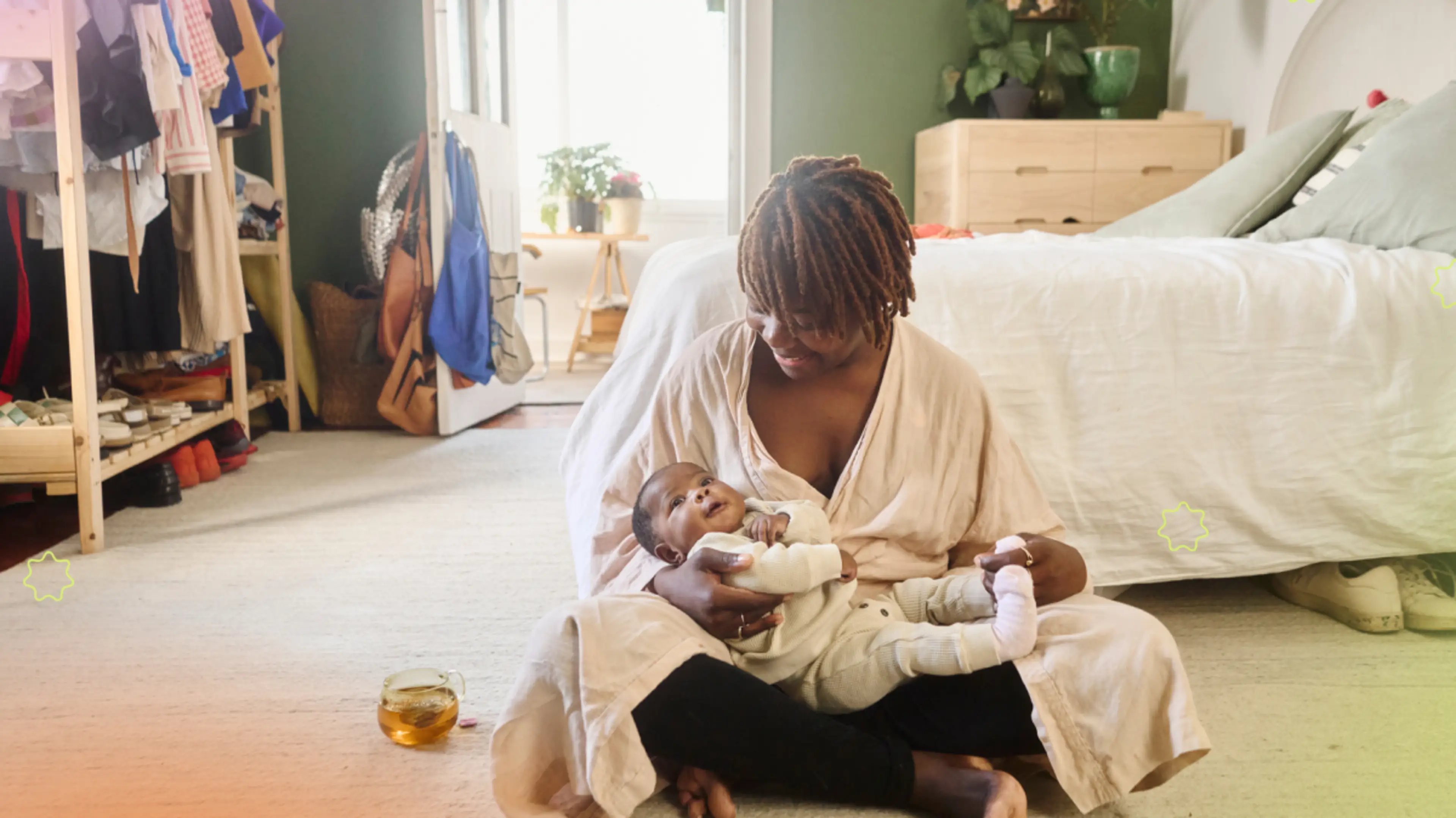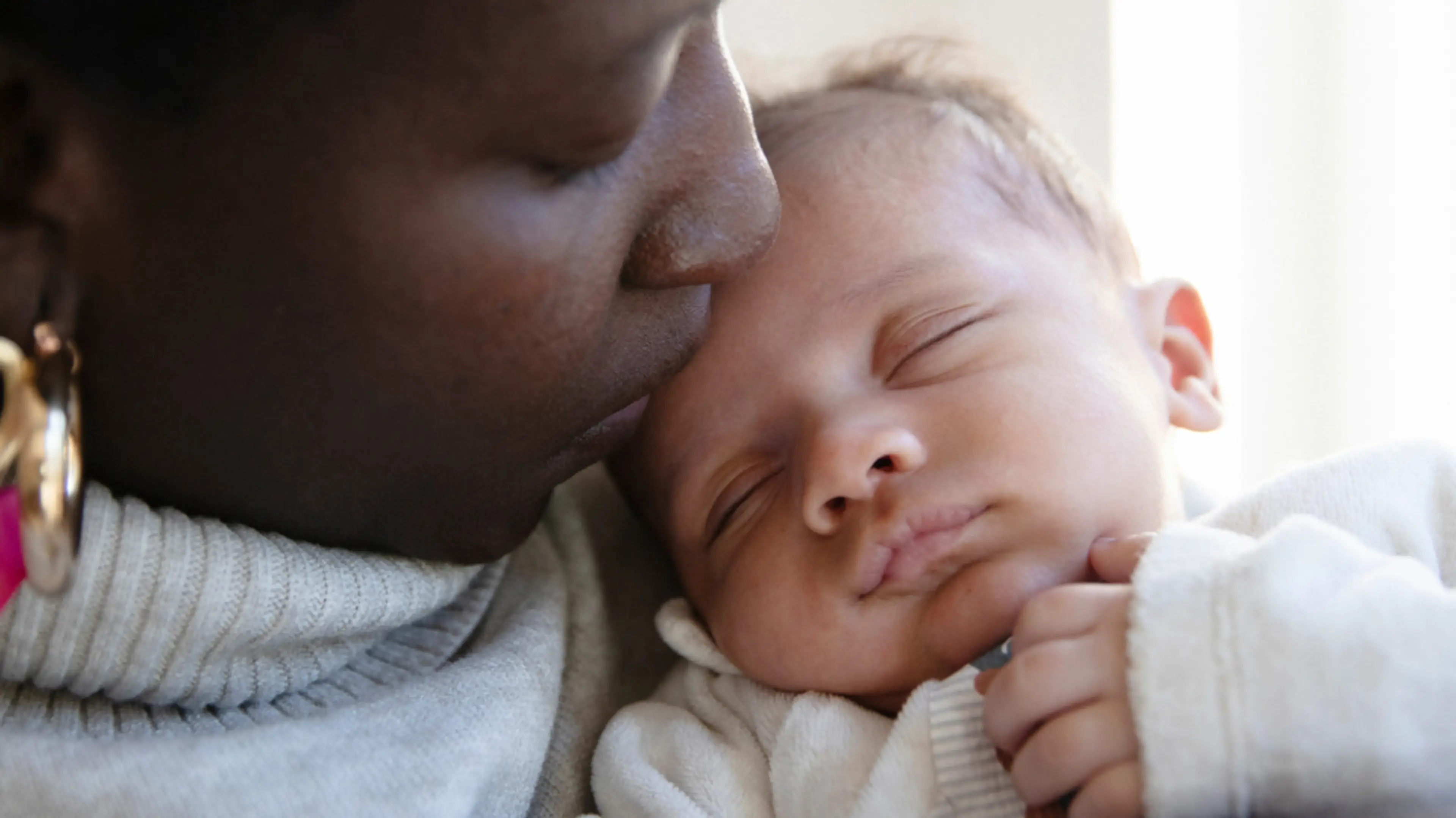Imagine you’re walking down the stairs with your newborn and you’re suddenly jolted by the scary thought of tripping with them in your arms. Or you’re driving home from the grocery store with your baby safely buckled in their car seat and your mind flashes to, “What if I get in an accident?” Maybe you don’t need to imagine having thoughts like these because you’ve experienced them firsthand.
“My brain vividly conjured frightening scenarios…[it] would play out a scene in visual detail, leaving me feeling shaken,” writes Lucy Jones in her book, Matrescence: On the Metamorphosis of Pregnancy, Childbirth and Motherhood1 .
What Jones is describing are called intrusive thoughts and many new parents experience them in the days, weeks, and months following giving birth. They can be startling when they suddenly appear in your head, but it’s important to know that they are very common and that there are ways to treat them.
Here’s everything you need to know, including tips for how to cope with them if they happen to you.
What Are Intrusive Thoughts?
These quick flashes of scary (and often disturbing) thoughts can happen to anyone. When we aren’t postpartum, we usually write them off as not being a big deal.
But when we experience them after having a baby, “when stress is high, responsibilities mount, sleep is disrupted, and hormones are compromised (as with a new mom) it can be harder to ignore these thoughts,” says Karen Kleiman, the founder of The Postpartum Stress Center2 and author of Good Moms Have Scary Thoughts3 . Since the fourth trimester is such a raw, sensitive time (and matrescence4 , a term coined to describe the highs and lows of the transition to motherhood, is a real thing), for many new moms, “[intrusive thoughts] can quickly be misunderstood as an indication that ‘I am not a good mom’ or ‘there is something terribly wrong with me,’” says Kleiman.
If you’ve experienced scary thoughts, it’s important first and foremost to remember and repeat these three things:
I am not alone.
I’m doing my best.
There is nothing wrong with me.
Who Might Be Affected?
While not all new parents report experiencing intrusive thoughts, one study conducted in 20195 found that they affect 70 to 100 percent of new moms. If you are one of them, you might be wondering, “Why me?”
Cassidy Freitas, a California-based Licensed Marriage and Family Therapist who has helped countless new moms navigate postpartum struggles says, “When we are postpartum, caring for a vulnerable newborn, it makes sense that our nervous system would be on more high alert for potential threats.”
While many new parents experience intrusive thoughts as a result of the great life change they’re going through, both Freitas and Kleiman note a few potential risk factors that can predispose new parents to the experience:
A history of mental illness
A history of anxiety or anxiety-related disorders
A lack of support or help
A traumatic birth experience
Freitas also adds, “oppressive societal factors such as racism, sexism, ableism, and other experiences of trauma,” can also contribute to having intrusive thoughts.
As if dealing with these thoughts wasn’t difficult enough, there can also be a great amount of shame in having unwanted thoughts about or related to your baby. It’s important to not let that fear or feelings of embarrassment stop you from reaching out for help. Unfortunately, intrusive thoughts typically don’t just go away on their own once your baby reaches a certain age. They can also persist beyond the fourth trimester (the immediate postpartum period).
If you start to notice you’re having intrusive thoughts, “regardless of the intensity or frequency, [know that] you deserve support and relief is possible,” says Freitas. Seek out a licensed therapist who will be able to dig into the source of the thoughts and work with you to develop tools to cope with them.
Sometimes even just voicing them out loud to someone you trust and who can hold space for you can do wonders. “Shame is a painful emotion that whispers to us ‘there’s something deeply wrong with you, don’t let others see,’” says Freitas. The antidote to shame is connection. “Shame cannot grow or fester when we feel seen, especially in our darkest moments. You are not your thoughts, you are not alone in this experience, and relief and support is possible.”
When Do Intrusive Thoughts Become a Concern?
While intrusive thoughts are often unpleasant and unwanted, they are generally just that, thoughts.
“If the thought is disturbing to you, feels inconsistent with your values, and you are afraid of the thought or image happening, these are real protective factors for both you and your baby,” says Freitas. This means you have a certain self-awareness that these thoughts are not reality, “and [those things are all] indicators that what you are experiencing is not postpartum psychosis6 .” (The latter is a life-threatening emergency and you’ll want to get help right away by telling someone what is going on, calling 911 or a crisis line, or going to the nearest emergency room.)
If the scary thoughts are experienced in addition to symptoms including feelings of hopelessness or suicidal thoughts, difficulty concentrating, hypervigilance, changes in appetite or stomach issues, difficulties with sleep, or disconnecting from those around you, it could signal that something deeper is going on.
How to Cope with Intrusive Thoughts
The good news is, there are ways to manage intrusive thoughts. Here are some tips that can help you cope with these scary and unwelcome intruders when they show up.
Seek professional support. Find a licensed therapist with whom you can share your experience and work with to develop tools to cope with the scary thoughts. We recommend starting with Postpartum Support International (PSI)7 to find a provider.
Recognize and acknowledge the scary thought. Thoughts are just that. Just because you think something doesn’t make it true or mean that it’s going to happen. Naming what you’re experiencing helps to take away the power. Kleiman recommends reminding yourself that you and your baby are safe, you aren’t in danger, and that it’s ok if you’re feeling some anxiety.
Talk to a trusted friend or family member. In the same way naming what you’re feeling helps to tame the emotions (a tip Daniel J. Siegel mentions in his book The Whole Brain Child), getting the thoughts out of your head and sharing them with someone else takes away much of their power too.
Take a breath. “Create mental space,” Freitas says. “By creating some space between the triggering thought and how you choose to respond, you give yourself a chance to reclaim agency over how you are going to respond.”
Get curious. As with emotions and feelings, thoughts are there to signal something within us. Freitas says to get curious and dig into what the intrusive thoughts might be trying to tell you. “It’s very possible that the data the thought or image is offering you is that you want to keep your baby safe, or that you’re feeling out of alignment with your values, or that you thought the experience of becoming a parent would be different,” she says.
Incorporate some mindfulness. There is science behind the benefits of practicing mindfulness in all facets of life, but especially during the perinatal period. “Flexing the mindfulness muscle by noticing and naming the thought can help create enough space for you to respond in a more productive way. Try saying: ‘I’m having the thought that _______. Thank you brain for this data, some pieces are helpful, some of it is unrealistic or not helpful.’”
Prioritize sleep. We know, we know. This is much easier said than done when you have a newborn (or a toddler or any age of kids, for that matter) but, “research shows that sleep deprivation can heighten symptoms of anxiety and depression in postpartum women. Getting restorative rest is a huge protective factor,” says Freitas. If you have a partner or other people around to support you, make a plan with them to help you get a few good chunks of sleep.
The biggest takeaway is this: intrusive thoughts are very common in the postpartum period because of all of the change that comes with bringing a new person into the world. They are neither an indicator that you’re not a good parent nor a reflection of who you are as a person. If scary thoughts are becoming too much to deal with or interfering with your daily life, know that you are not alone and help is readily available.












